When she took the floor her voice quivered. Eqbal Dauqan, a Yemeni refugee now living in Malaysia couldn't hide her sorrow for the uneasy situation she's experiencing away from home.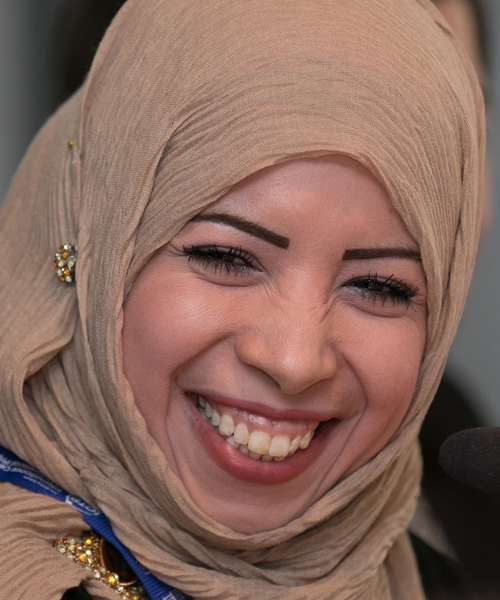
"I'm proud I'm a Yemeni scientist, and I'm not interested in getting citizenship from other countries," she said during the workshop Refugee Scientists: Transnational Resources. "Should I experience difficulties entering some countries or even staying in Malaysia, and if the only solution is to change my nationality, I'd refuse this solution and I will go back home, even if walking on foot."
The workshop, held 13-17 March in Trieste, Italy, was organized by TWAS in partnership with the Trieste-based National Institute of Oceanography and Experimental Geophysics (OGS) and the Euro-Mediterranean University (EMUNI) of Piran, Slovenia, with key support from the Swedish International Development Cooperation Agency (Sida).
Dauqan, an assistant professor in chemical science and food technology at University Kebangsaan Malaysia, was one of the refugee scientists who helped sketch an intense and heartfelt portrait of the hurdles and needs that scientists face when they are forced to flee from wars and persecution.
Other participants in the roundtable were Syrian climatologist Shifa Mathbout, now a postdoctoral researcher in Spain at the University of Barcelona's department of meteorology and astronomy; and Zabeeh Ullah Sahil from Afghanistan, who was administering an agricultural development programme throughout Afghanistan until he was forced to leave his home country to save his life.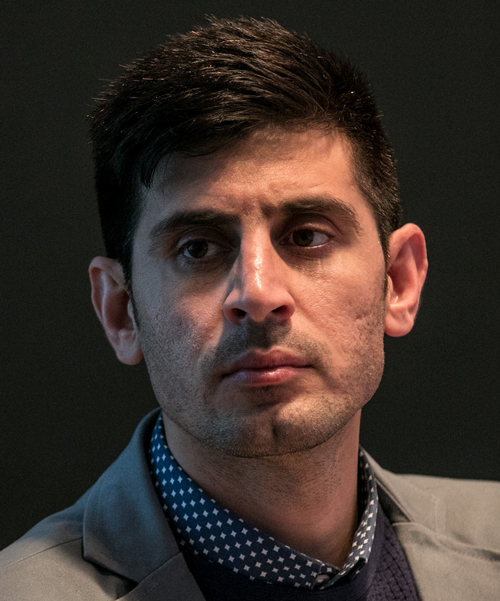
Their stories have unique features, but the three share common experiences and, at the moment, a similar destiny. All are accomplished professionals, with advanced education and experience. All three had to leave their home looking for a better place to live and work. All three have the same dream: to go back home one day, and cooperate in the rebuilding of their countries.
Dauqan received her bachelor's in biological chemistry (2002) from the department of chemistry at Taiz University in Yemen. In 2008, she was awarded a master's of organic chemistry by Taiz University, and a scholarship by the Trieste-based Organization for Women in Science for the Developing World (OWSD), to pursue her doctoral studies in Malaysia.
In 2012, after earning her PhD in biochemistry from the University Kebangsaan Malaysia, Dauqan was awarded a post-doctoral fellowship there in chemical science and food technology.
She became an assistant professor in biochemistry and food science, Alsaeed University, Taiz-Yemen (before the war in Yemen). Currently she is a visiting scholar in the school of chemical science and food technology at UKM, sponsored by the Institute of International Education-Scholar Rescue Fund IIE-SRF, which is based in New York.
In Malaysia she is very active. In recent times she organized an academic workshop with eight different academic topics, in cooperation with the Yemeni Students' Union at UKM. However, the situation at home is a constant preoccupation. "I am still in touch with my former students," she said. "But few are still in Yemen. You cannot work there any more," she said, admitting she's worried also about her family in Yemen.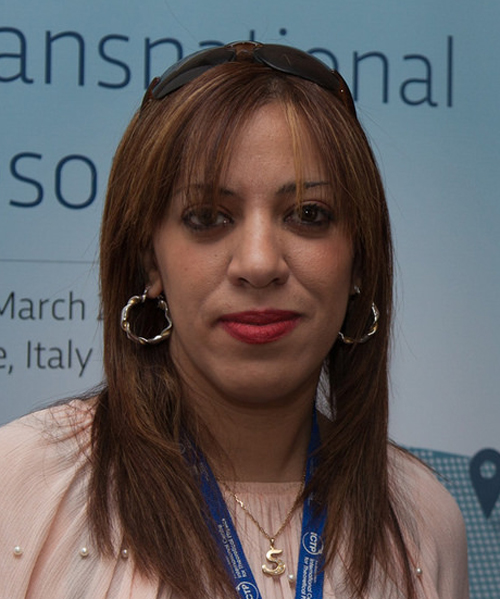
Among the problems she has encountered during her escape were the high costs of the travel: from Yemen she moved to Saudi Arabia, then to Jordan, Qatar and eventually Malaysia. There she is a respected scientist, but still has problems in getting the visas she needs to attend international conferences to present her new research and to attend international workshops, as well to improve her scientific curriculum.
Zabeeh Ullah Sahil, who has a master's degree in finance with honours left Afghanistan only after surviving an assassination attempt. "Extremists intimidate educated people: scientists who work with foreign organizations, academies and governments are their enemies," he explained.
After a perilous journey across the Balkans, he stayed for 13 months in an Italian refugee shelter. He recently started working and left the centre. But he carries the heavy memories of friends lost to terrorist violence. "Refugee scientists need public recognition," he urged the audience during the workshop. "We feel inadequate, invisible, useless. Also, sometimes we feel guilty: I've been living in Italy, and my family is still in Afghanistan, living a difficult life and that is something that makes me worried."
The dreams he nurtured just a few years ago are on gone, for now. Sahil sees his future as hazy, a question mark.
Syrian meteorologist Shifa Mathbout lives in Barcelona. She completed her first postdoc at the University of Almeria, Spain, in the department of environmental science and she is achieving her second one now. She is a well-integrated member in the climatology group at University of Barcelona, where she investigates climate changes in the Mediterranean area, focusing on over 350 "hot spots".
"At the time I was finishing my master's degree about climate change," Mathbout explained, "I was living in Syria. I had to leave in 2012 because of the political situation." Today she's in the international protection programme as a Syrian refugee.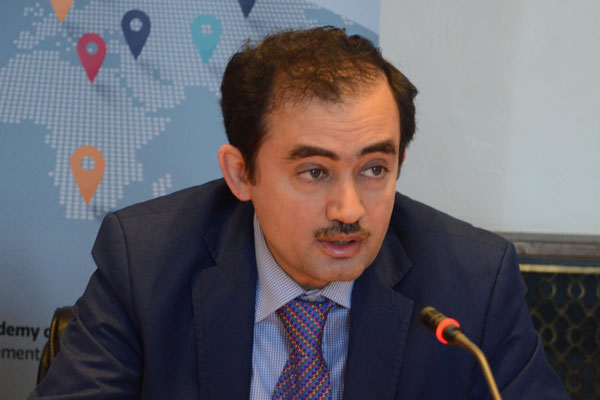
"Having a Syrian passport is a matter of concern. It often causes me troubles," she maintains. "At the airport, they ask me to explain why I'm there and where I'm going. And that process can last hours. Being Syrian makes me a dangerous or even an undesirable person to many countries."
She cannot go back home, as in Syria her life could be at risk. From Spain, she is looking for a new position in another country, once her second PhD is completed. But so far chances to get a job abroad are scarce.
Mathbout is strong-willed: her education and skills in climate science keep her positive about the career. However, as she says: "I know I can live well everywhere. But deep down in my heart I will always feel a Syrian woman."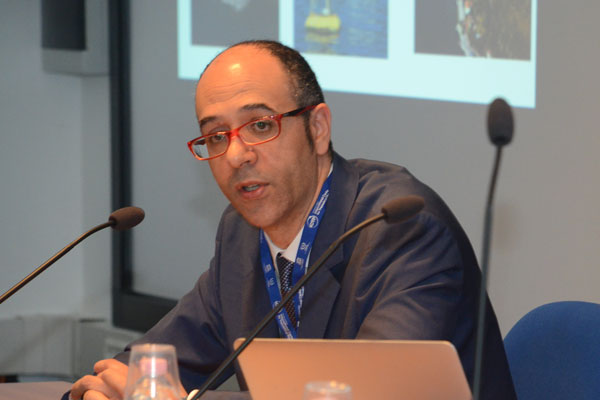
Mathbout is a fairly fortunate example of a refugee scientist. Many of her colleagues are experiencing harder times. But it's hard to know exactly how many scienists are affected, and how they're affected. Data is scarce.
"According to recent estimates, the Syrian population was around 23 millions before 2011. After the crisis this number has plummeted to 15 millions. Among the 5 million fleeing Syrians, and according to recent figures probably some 25% of them are scientists, scholars, students who aspire to better life and work conditions," observed professor Radwan Ziadeh, a senior analyst at the Arab Center, Washington D.C. USA, during the introductory press conference.
During the civil conflicts and war, many have left their homes, looking for a place where they could remain scholars and feel relevant to others.
Experts at the Trieste workshop agreed that international science academies and organisations have a key role to play: providing insight to governments, policymakers and diplomats to increase undestanding of the challenges faced by refugee scientists – and the resource they represent. They should also urge the private sector to engage in more proactive actions, in order to sustain these scientists.
"Hopefully wars won't last forever," said Mounir Ghribi, in charge of the international cooperation and strategic partnerships at OGS. "Science diplomacy will be indeed crucial to path the way towards peace and stability. We must build an active network of influential scientists who could be instrumental in easing the refugees' return to their home. We must see refugee scientists not as 'transnational resources' but as transitional, temporary resources for the hosting countries."
Cristina Serra

